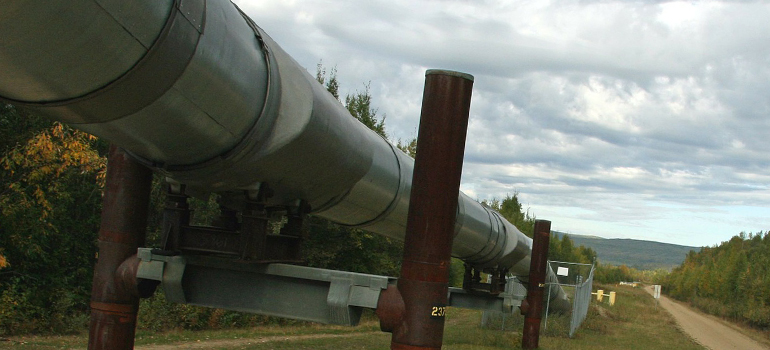A diverse group of researchers from UBC Okanagan’s School of Engineering is tackling some of the most pressing challenges in British Columbia’s natural gas sector.

The British Columbia Natural Strategic Research Initiative (BC NGSRI) was established to develop tools and knowledge to safely and sustainably grow the province’s natural gas sector. The BC NGSRI brings together researchers, government and industry partners to conduct a variety of research and development projects.
[Learn more about UBC Okanagan research into the effectiveness of four different proppants used during hydraulic fracturing – https://www.sciencedirect.com/science/article/pii/S1875510018300982?via%3Dihub]
“These types of projects are ideal because they provide us real-world challenges and allow for the development of innovative solutions in collaboration with government and industry stakeholders” explains Dwayne Tannant, a professor at the School of Engineering and the Initiative’s lead researcher.
[Learn how UBC Okanagan researchers are assessing water use in unconventional oil and gas development – https://link.springer.com/article/10.1007/s10098-017-1431-0]
Many of the researchers are embedded within the industry partner’s operations and conduct experiments and analysis to better understand and optimize proppant behaviour, evaluate water use, and monitor infrastructure hazards.
[Learn how UBC Okanagan researchers are assessing induced seismicity and internal corrosion factors as they pertain to oil and gas pipeline integrity – https://www.sciencedirect.com/science/article/pii/S0950423017302127]
Their findings will establish guidelines for water use and controls for infrastructure hazards throughout the sector.
“Due to the collaborative nature of this research, our findings are playing an important role in the decision-making process within the industry” says Rehan Sadiq, Associate Dean of the School of Engineering and one of the researchers involved in the initiative.
[Learn how UBC Okanagan researchers are evaluating the crushing resistance of frac sand used in hydraulic fracturing – https://www.sciencedirect.com/science/article/pii/S0266352X17302690?via%3Dihub]
Only a couple of years into the initiative, the research has already resulted in a commercial application from Secure Energy Services and multiple collaborations with other industry partners including Trican Well Services, Fortis BC and the British Columbia Oil and Gas Commission.
“The BC Oil and Gas Commission is a science based regulatory agency and we are pleased to partner with UBC Okanagan on these research initiatives which have the potential to inform the regulation of oil and gas activities in British Columbia,” said Mayka Kennedy, the BC Oil and Gas Commission’s Executive Vice President and Chief Engineer, based in Kelowna. “Students also benefit by gaining exposure to the Commission, as the oil and gas regulator, and the industry itself.”
“We see these initiatives providing short-term and long-term benefits to all involved parties and laying the foundation to address emerging challenges in the expanding unconventional gas industry” says Dr. Tannant.
UBC Okanagan researchers have created a conceptual framework for ecological risk assessment of accidental release of flowback water related to the hydraulic fracturing process.
The BC NGSRI is partially funded by government and industry partners along with funding from Mitacs, a national not-for-profit research and training organization.